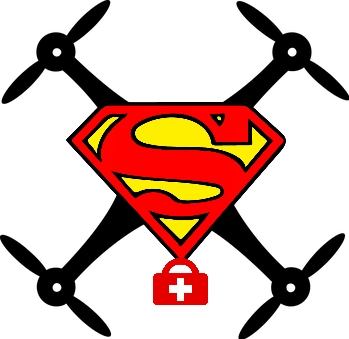Without a doubt, Amazon has changed the world of delivery. Amazon Prime can deliver items to your home faster and more reliably than ever before.
Amazon is even trying to convince people to let the delivery rep enter your house to drop off the delivered items. A bold move, I must say.
Nevertheless, Amazon is always looking at bringing in the next big thing to step up their innovation game. They might just do that with their soon to arrive Amazon Prime Air Delivery.
Check out the Amazon Prime’s first air customer delivery here:
So how does this help first responders? Well, what if drones can be used to deliver medical supplies? In third world countries, or in catastrophic disaster scenarios such as happened in Puerto Rico, people still lack adequate access to essential medical products. That is where a company called Zipline can help. Zipline improves access to medical supplies by flying over impassable mountains and washed-out roads, delivering directly to remote clinics.
Here is how it works, according to Zipline’s website:
1 Order by Text Message
Health workers at remote clinics and hospitals text orders to Zipline for the medical products they need, on demand.
2 Packed in Minutes
Zipline safely stores medical products at its Distribution Center, enabling immediate access to even the most sensitive or scarce items. These items are packaged here and prepare for flight, maintaining cold-chain and product integrity.
3 Takeoff
Within minutes, health workers receive confirmation that their order has launched. Racing along at 110 km/h, products arrive faster than any other mode of transport, no pilot required.
4 Direct Delivery
Fifteen minutes later, the medical products are delivered gently by parachute, landing in a designated area the size of a few parking spaces. Hospital staff are notified via text message.
5 Recovery
Zipline’s drones return home, only landing at Zipline’s distribution center for a quick pit stop before taking off again.
Read more about Zipline here:
On a related note, check out this article about a defibrillator-equipped drone:
http://www.cbc.ca/news/health/using-drones-for-defibrillator-1.3848349
